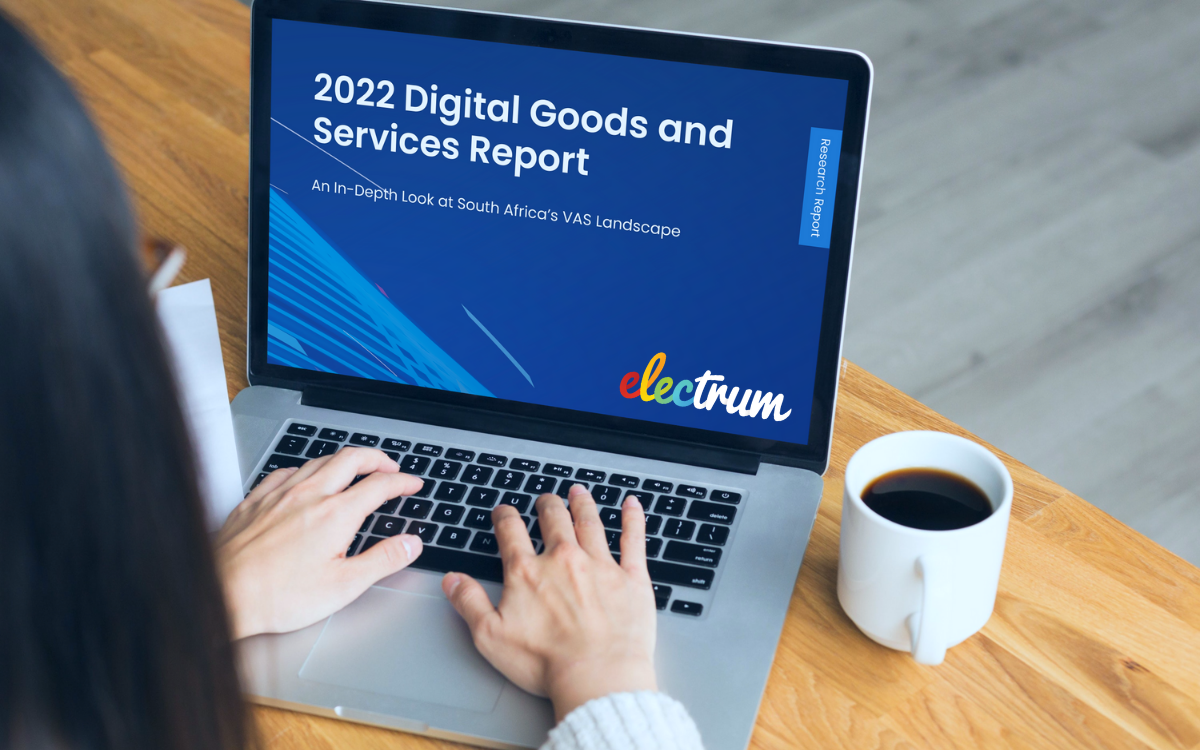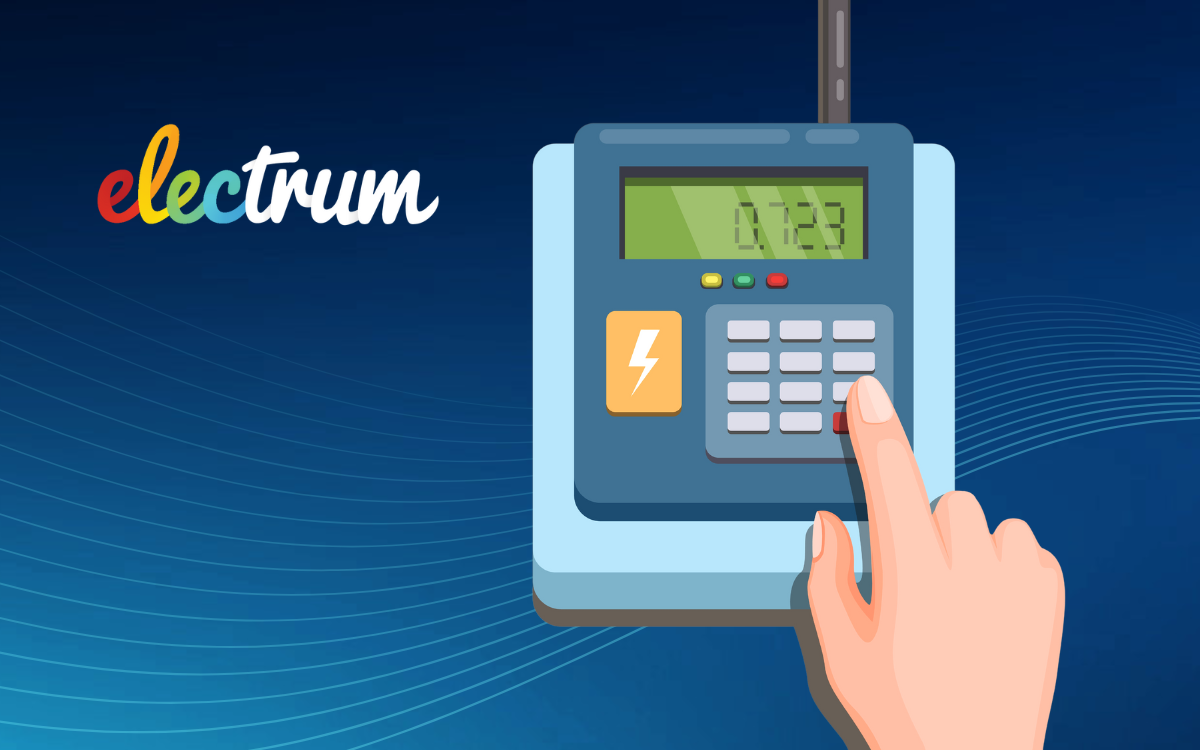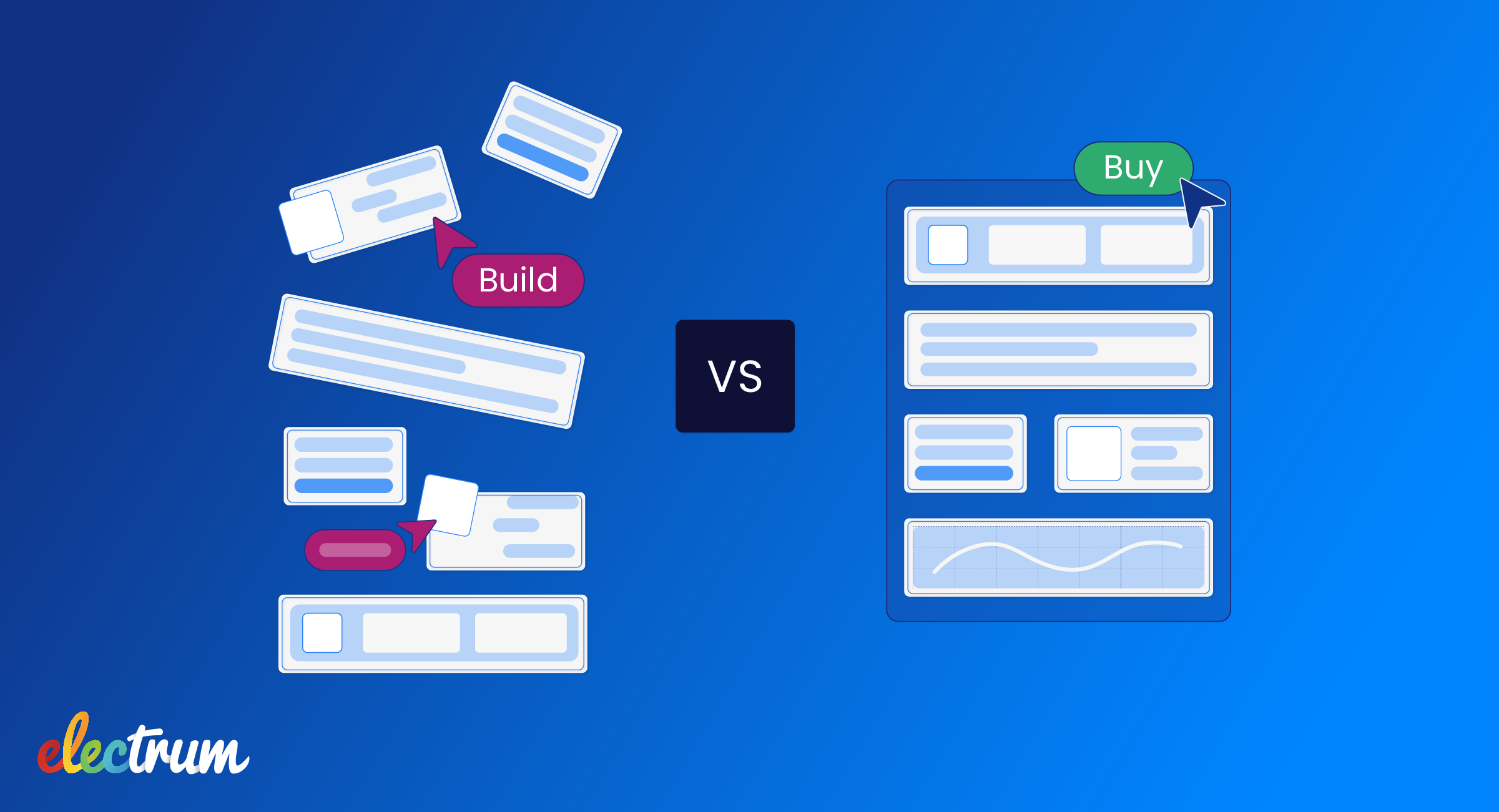
Over the past three decades, many businesses have come to realise the importance of having a successful value-added service (VAS) portfolio to compliment their core focus. As consumers are becoming increasingly digitally-savvy, and the landscape is being changed by market influences such as the COVID-19 pandemic or the increasing functionality of apps, it is pertinent to unpack how and why various digital goods and services are being used.
Our 2022 Digital Goods and Services Report highlighted the top 6 VAS products in South Africa, with a look at how consumers are purchasing these products, and where they believe their future usage lies.
Implemented successfully, a VAS portfolio can help you:
-
Earn non-core revenue and contribute to primary business by increasing customer retention
-
Generate an additional demand for existing products and services
-
Increase profits with ROI from transaction fees and commissions
We have summarised the state of the top six digital goods and services products, providing you with a starting point for expanding or starting to build your digital marketplace.
Prepaid Airtime and Data
Prepaid airtime and data is the king of VAS in South Africa. It takes the crown when it comes to value, usage and awareness, with 294 million transactions per month – more than double the second most popular VAS product. It holds R9.8 billion of the total VAS market value and has grown from 32% to 42% in volume. This recent, significant growth can be attributed to the national lockdown in 2020 which led to an increase of online entertainment (as supported by the growth of sports betting and LOTTO), online shopping and many South Africans working remotely.
While conducting interviews with industry experts from retailers, banks and MNOs for the 2022 Digital Goods and Services Research Report, a trend in purchasing behaviour for this product was noted: Consumers reported preferring to purchase airtime and then converting it to data, instead of buying data bundles directly. Experts have hypothesised a number of reasons for this behaviour, including:
-
The value paid per transaction equals the value of the airtime voucher
-
Airtime can be bought in custom amounts where data is bought in bundles, allowing more flexibility
-
Historically, data bundles would expire sooner than airtime and consumers would get charged out-of-bundle rates
Sports Betting
Due to a strong upward trajectory in recent years, the rise of sports betting was anticipated. While the traditional gambling industry faced unparalleled losses, the national lockdown in 2020 can be seen as the excelerator of sports betting. This product has shown the biggest growth in the market – taking a 16% share of all VAS sales in 2022, up from 2% in 2020. Not only was sports betting digitally accessible while physical gambling outlets closed, but it also provided around-the-clock betting options for consumers. It is worth noting that even though it holds the second largest share in volume (112 million transactions per month), it still only accounts for 6% of the VAS market in value: Consumers may purchase this product much more frequently, but bets are still of low value.
As the black sheep of VAS, many industry representatives didn’t hesitate to raise concerns around the ethical implications associated with adding sports betting to their digital goods and services marketplace. It remains a controversial revenue stream with a questionable future – notwithstanding its significant growth over the past couple of years.
LOTTO
At 9%, the National LOTTO accounts for the third most VAS sales in South Africa, with the most common amount spent being between R21 and R50. There were over 55 million winners in the first six months of 2021, and similarly to sports betting, transaction surges in this product can be attributed to the 2020 lockdown.
With not all South African banks offering some form of LOTTO games on their apps, and a very limited online offering from retailers, there is a definite gap in the digital market. In total, 25% of the research respondents indicated they intend to purchase more of this product over the next 6 months, although this barely compares to 45% of consumers who intend to spend more on sports betting – supporting the belief that sports betting will continue to trump LOTTO in the near future.
Sharing the ethical dilemma with sports betting, it is believed that LOTTO can be seen as a more acceptable form of betting with a portion of the ticket sales being allocated to non-profit organisations and social causes (fighting COVID-19, the Solidarity Fund, etc.). This could indicate that although sports betting is rapidly rising in popularity, LOTTO may remain popular for the long haul.
Prepaid Electricity
With over 70% of the South African population having access to prepaid electricity meters, this product accounts for 7% of digital goods and services sold. Purchasing behaviour for this product is habitual as consumers tend to spend the same amount, once a month, every month – regardless of price increases.
As the majority of households rely on this product, consumers not only expect access to it – but easy access. Retailer till points, bank apps and money market counters at retailers are the top three preferred channels for purchases. By 2020, most major banks charged a transaction fee for prepaid electricity, although their rates differed.
Prepaid electricity accounts for 8% of the total VAS market value, an estimated R2.8 billion per month. With the opportunity for businesses to earn up to 2-3% commission (totalling around R7 million monthly) on the average consumer spend, this can lead to an assured increase in non-core revenue.
Money Transfers
It might be fifth in the race to highest volume, but, when it comes to value, money transfers take the silver. It is estimated that the value of money transfers in South Africa is R2.1 billion per month. The majority of consumers making money transfers reside in urban areas and tend to send money once a month. Even though these transactions are made less frequently than most other VAS purchases, the average transaction sits between R550 and R850; significantly higher than any other VAS product.
During interviews for the 2022 Report, industry stakeholders noted that due to safety concerns lower-income groups frequently create money transfer vouchers before travelling home, only to collect the cash upon their arrival. The security risk of theft, coupled with the inconvenience factor in this specific instance, creates an opportunity for banks and retailers to partner and enable payroll with money transfer cash outs. Not only is this a safe substitute for cash, but it also bridges the gap between the growing, modern, cashless consumer and the heavily cash-based user.
Bill Payments
Similarly to money transfers, bill payments are regarded as one of the most valuable VAS products, albeit with lower transaction volumes. As payments are generally made once a month, bill payments account for a smaller 3% share of the market volume, but a full 10% in value (approx. R3.5 billion per month). After bank apps, retailer till points are respondents’ preferred purchasing channels.
The most common bill payment type is DStv, with 58% of consumers making this purchase. With 12.2 million MultiChoice subscribers in South Africa, including this service in your VAS portfolio could lead to major increases in revenue. In comparison, the Western Cape Traffic Service issued over 6 000 fines from 22 to 27 March 2022 – totalling over R5.5 million. This could be seen as the golden nugget of bill payments, although only 6% of consumers reported actually paying their traffic fines.
Bring it all together with an exceptional user experience
Each VAS product is unique and comes with its own set of variables. One thing remains constant throughout all products: A positive customer experience is an integral part of the success of an organisation’s digital offering. This not only holds the opportunity to draw new customers to your business but, more importantly, it keeps your existing customers loyal – vital to your core business.
Whether your VAS strategy is to build on an existing digital marketplace, or whether you are choosing which initial product to include in the launch of your digital goods and services offering; understanding the behaviour of consumers is critical to your success.
Download the 2022 Digital Goods and Services Report to learn more about how consumers interact with VAS products in South Africa or simply reach out to chat to someone directly from our team.

Liezl Basson
Liezl joined Electrum’s Marketing team in 2020 from a (hard lockdown) Zoom screen. Nowadays, if she’s not in her sunny corner in the office researching everything about VAS, she’s probably strolling, coffee in hand on the Sea Point promenade.
Electrum Newsletter
Quarterly insights and news to help you keep up with the latest changes in the payments landscape







